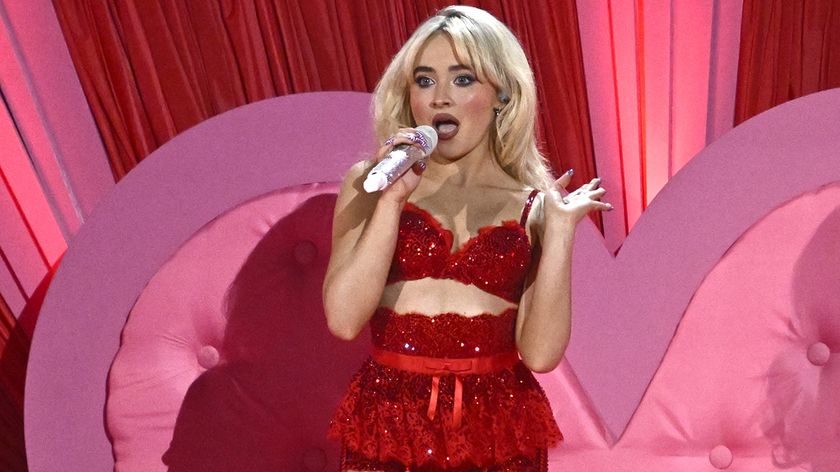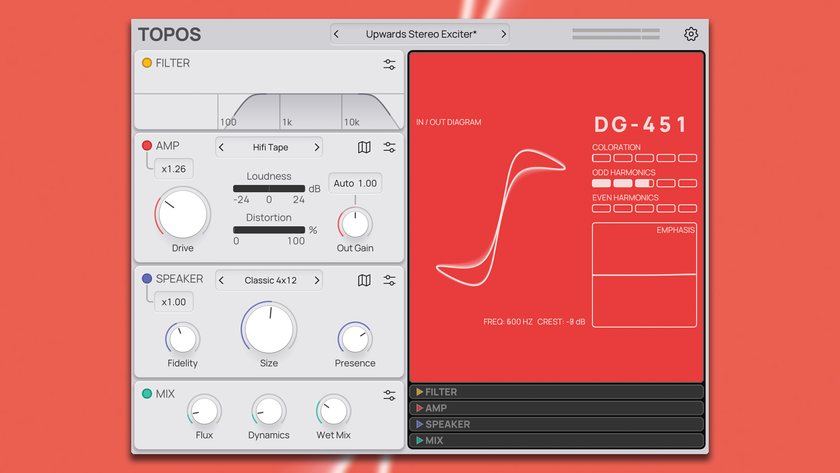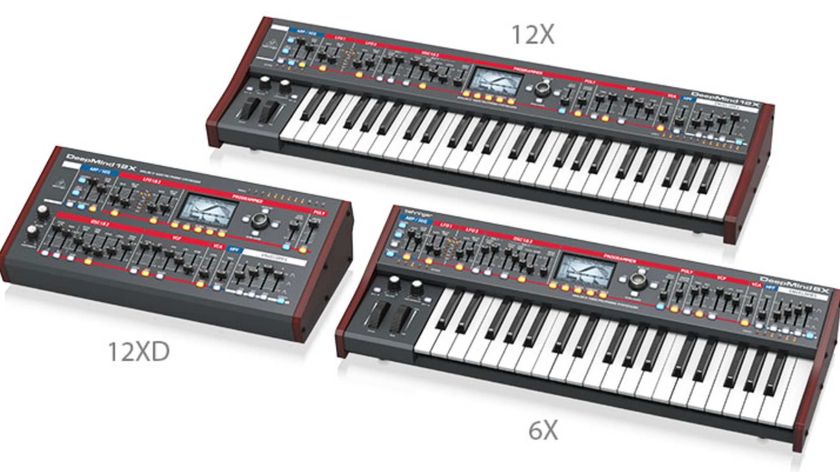"I love exploring and channelling these different pieces of me from these different eras" – Nothing,Nowhere on Trauma Factory and the 10 albums that changed his life
“I still get tripped out when reading comments from people saying that my music saved their life," admits Joe Mulherin
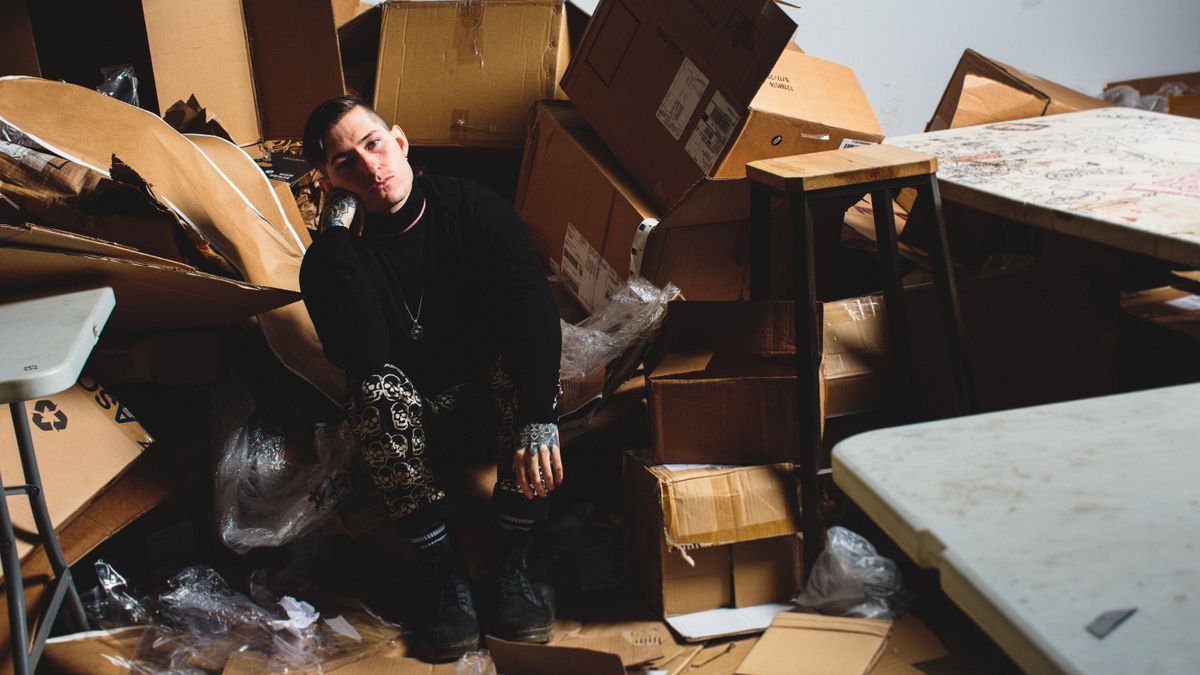
Joe Mulherin, better known by his stage name Nothing,Nowhere, has been leading the Emo Rap pack as one of the genre's brightest lights since 2015. Initially finding an audience on Soundcloud, he has been on a continual evolution as a songwriter - writing songs that are carefree but adventurous, self aware enough to recognise their oddness and confident enough not to care.
While the term Emo Rap is not an entirely inaccurate description, it doesn't tell the whole story. Guitar is always at the core of what Joe does with Nothing,Nowhere, writing songs that, despite utilising a broad sonic palette, could easily be stripped back and performed Dashboard Confessional style.
Joe spoke to MusicRadar shortly before the release of the fourth Nothing,Nowhere album on 19 February, Trauma Factory (preorder) an ambitious, genre agnostic record that lives up to its name as the haunting yet hopeful soundtrack to a young man exorcising his demons. We talked about releasing a new album in the midst of a global pandemic, how he uses the guitar as a foundation to build songs upon, as well as to talk about the ten albums which changed his life and influenced his musical trajectory.
“Music is an outlet for me to place my pain somewhere and to be constructive with my own trauma"
“Externally, it has been a confusing time with the global pandemic and geopolitical meltdown.” Joe tells us. “But internally it has also been a very confusing time for me. After the release of my album Ruiner in 2018, I had to take a hiatus from touring and from music to deal with my own panic attacks and panic disorder. Trauma Factory is my return to music and to making full albums again. The album is about finding balance and finding peace in my every day life, and being on a journey just to feel okay again.”
“Music is an outlet for me to place my pain somewhere and to be constructive with my own trauma, and to place it in art rather than something self destructive.”
With songs like Fake Friend and Love or Chemistry, human relationships are an undeniable driving force behind the lyrical content of Trauma Factory. Given that the world has been in a state of semi-isolation for the last 10 months, has Joe noticed the lack of human contact affecting the subjects he tackles in his lyrics?
“It's funny, because I never really saw too many people as it is, because I'm kind of a hermit!” Joe says with a laugh. “But I think there is a difference between being a hermit and having the choice to see other people if you want to. Once you have that choice of seeing people stripped away then it's a little harder.”
Get the MusicRadar Newsletter
Want all the hottest music and gear news, reviews, deals, features and more, direct to your inbox? Sign up here.
“In terms of it impacting my writing with regards to relationships, not necessarily because a lot of my material stems from times when I was younger and moments that shaped me, so a lot of my music is really nostalgic and about looking back, and trying to make sense of the past traumas that I have been through.”
"It is a beautiful thing to know that when I am recording a song which is helping me, that song is also helping others"
Joe has long worn his heart on his sleeve and has not shied away from discussing his own struggles with mental health – Both through his lyrics and in interviews – as well as encouraging others to do the same. While his music is a way for him to manage his own emotions, his songs have found a deeply appreciative audience who find solace in his words. A cursory glance at the comments following anything he uploads to the internet will demonstrate this.
“I still get tripped out when reading comments from people saying that my music saved their life. Maybe they aren't giving themselves enough credit, because I am just a dude who plays guitar and sings, but it is a beautiful thing to know that when I am recording a song which is helping me, that song is also helping others. I think music is the gift that keeps on giving, it's a beautiful thing just to share.”
"I'm a guitarist first of all and that instrument was definitely my first love"
As you might expect, Trauma Factory is an eclectic listen. Second wave Emo style riffs roll over trap beats and sub hits, and Joe's sung, rapped and sometimes screamed vocals are produced with a stylish, modern pop sensibility. At their core, however, the songs on Trauma Factory are guitar songs that can be stripped back and performed as bare bones pieces, with the modern production twists being a stylistic choice to add flavour to the songs rather than something which dominates the sound.
"That's definitely how I write songs. I'm a guitarist first of all and that instrument was definitely my first love. I feel most comfortable with a guitar, so my process of writing a song usually starts with just a single chord on the guitar and it builds from there.”
“I'll walk around my yard or my house and just play some melodies on the guitar, and then the vocal melodies will naturally start to come in. Eventually, the weird gibberish that I'm singing in place of lyrics will turn into words. So yeah, I guess the one take versions that I make for these songs and post on YouTube are a return to when the songs themselves were in their infancy.”
"I just appreciate music for what it is, and when it comes to making music, I love exploring and channelling these different pieces of me from these different eras"
There is a refreshing lack of pretension here, and an honesty behind the desire to write music that mashes elements of genres that seem unconnected on a surface level, but are brought together by pure diversity of taste.
“I grew up listening to bands like The Promise Ring, Sunny Day Real Estate and American Football, but in the same breath I also grew up listening to Wu Tang Clan, De La Soul, A Tribe Called Quest, and MF Doom. So I've always been inspired by every kind of music.
“I just appreciate music for what it is, and when it comes to making music, I love exploring and channelling these different pieces of me from these different eras. There's a song on Trauma Factory called Barely Bleeding, and on that I song I get to channel the 13 year old me who was listening to Underoath. Another song called Lights is more informed by my current self who is listening to a lot more R&B.
“I think the range of music on Trauma Factory is just a natural occurrence for me because I listen to everything. For this album I really went for it. I'm just going to do me, make whatever I want and put it all in one album.”
“That sort of stereotype of 'kids these days', that is as old as music itself"
There is something about the songs on this album that feel as though they could only be written in the Internet Age, by someone who grew up unaware of musical boundaries and unbothered by the cliquey nature of music scenes – tastemakers be damned.
“I'm not a genre elitist” Joe is quick to say. “That sort of stereotype of 'kids these days', that is as old as music itself, you know? It's always been the older generation clinging on to the comforts of their youth and what they loved, and it is hard for them to accept someone doing something completely different. That's always been happening.”
“I think these days with music streaming in the internet era, the influences can come from everywhere. We have worldwide influences now. No longer do you have to go to local shows to discover new bands and there's no real "local sound" anymore.
"Everyone is influenced by everyone else. You used to be able to tell if a band was from the Midwest or from LA by how they sound, but now the inspiration comes from everywhere. I think that's cool because it opens people's minds up to kinds of music that they'd never even have considered before.”
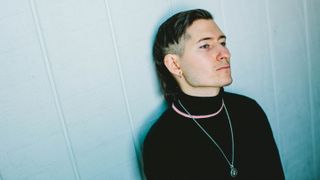
"I think a real positive has been that there is a certain stillness that comes from being forced to pause like that"
Reflecting on Trauma Factory and its differences from his past output, Joe has some things he is particularly proud of.
“One of the things I am most proud of is how honest I was with myself and how specific I was with my lyricism. There's a song called Real on the album which delves into where I am at now with my place as a musician and the expectations that others have on me, and the pressures that I put on myself.
“There's a lot of instances like that on this album. On the song Buck I am really honest with myself in talking about how the grass isn't always greener, you know what I mean? It's about how you can even be the biggest musician in the world, but at the end of the day that's not necessarily going to bring you fulfilment and happiness. That's a tough pill to swallow for a lot of people, but I am glad that I figured that out sooner rather than later.”
So does Joe think that having some time off from music helped him to figure that out?
“Yeah. I think in a way, the lockdown and the pandemic has been so hard for a lot of people and 2020 has been really difficult - Especially for people who are already dealing with mental illness, but there's still some positives you can take away from it and I think a real positive has been that there is a certain stillness that comes from being forced to pause like that. Real life has been put on a time out, and you have more time to reflect on where you've been and where you are now, and it makes you more acutely aware of the present moment which is all we have, and which is the most important.”
“There is a silver lining to it all, and tying back into the title Trauma Factory - "Human life is a Truama Factory, Human Life is Suffering" - Is that a negative thing, or can there be a positive thing in that too? At the end of the day it is up to the listener to decide.”
“My goal is to always be the oddball at any show I play"
The current state of the world makes it very difficult for artists to make plans, and releasing albums is always a risk given the inability to tour – But nonetheless, Joe is hopeful and optimistic about the future and already itching to get back on the road.
“I guess nobody knows anything for sure right now, but I like to remain optimistic. I have some tour dates with Neck Deep slated for the fall and early winter of 2021. I would love for that to happen because I've been spending too much time at home and I really do miss those connections that you make on the road. I was thinking the other day about all the little things I would sometimes complain about while on tour, about only getting 2 hours of sleep a night, or how the venue bathrooms are sometimes disgusting... but now? I would give anything to get 2 hours of sleep at a crummy motel and have to lug all of my gear around. I would do a whole tour of just loading in and loading out at this point, that's how much I want to get out there!”
And once that time comes, Joe is fully ready to tour with anyone and everyone – An ethos he developed early on.
“My goal is to always be the oddball at any show I play. If I'm in the middle of the bill or even if I am headlining, I would prefer to be the one that people remember by thinking "What the hell was he doing on that lineup?"
“The first tour I ever did sounds insane, and I am extremely grateful I got to do this - was with Thrice and La Dispute. Their fans had no idea what to make of it, and I love that. I love the shock factor and the fact I got to mix things up and be something different. I've been touring for around 5 years and I still don't know where I fit. I've opened up for Fall Out Boy, I've played with post-hardcore bands, I've brought rappers out on tour to open up for me, I just don't think I'll ever fit in to a single bill, but that's the beauty of it.”
Nothing,Nowhere: 10 albums that changed my life
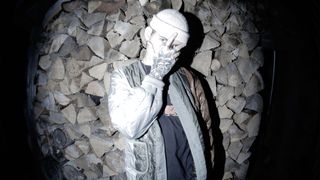
1. American Football - Self Titled (1999)
"I had a weird introduction to American Football. Growing up in Vermont, I'd always loved snowboarding. I had this video game called Amped on the original Xbox, this must have been around 2003, and weirdly enough the song Never Meant by American Football was on that soundtrack. I was just a little kid, but I remember hearing it and thinking it was amazing. It was sort of love at first sight for me. Mike Kinsella is a genius."
2. Linkin Park - Hybrid Theory (2000)
"Hybrid Theory was the record that made me fall in love with the idea of mixing alternative music with hip hop and rap. I played this album on repeat for the entire 4th and 5th grade and even had Linkin Park stickers all over my skateboard and snowboard helmets. It really changed my life for sure."
3. Senses Fail - Let It Enfold You (2004)
"This was my middle school anthem. I almost never took off my Senses Fail hoodie around that time and would even buy girl's jeans or use my mom's sewing machine to sew my jeans to make them tighter so I could dress like them!"
4. Prince - Purple Rain (1984)
"I didn't really delve into Prince's stuff until a few years ago when I saw the movie Purple Rain, but from then on I was just completely enamoured by it and by the entire album. What he was able to do throughout his entire career, changing up genres so effortlessly and being so fearless in his creative process, I found that really inspiring."
5. Taking Back Sunday - Where You Want To Be (2004)
"Again, we've got a bit of a theme here! Most of my life changing albums can be traced back to middle school just because it's a really significant time in life. I had never heard music before that was so vulnerable. It gave me a place to put all of my pre-pubescent angst, so shout out to Adam Lazzara for that."
6. Blink 182 - Take Off Your Pants and Jacket (2001)
"Being a teenager at the time, I just really loved how almost "Jackass" like Blink-182 were back then. I have really fond memories of listening to that album while goofing around, setting stuff on fire in my back yard and going to skate parks. Just a really innocent time.
"I was able to work with Travis Barker a few years ago and it was one of those moments where I felt everything coming full circle – Definitely a moment I had to pinch myself."
7. Have Heart - Songs to Scream at the Sun (2008)
"Growing up outside of Boston and being interested in Straight Edge, this was sort of my introduction to straight edge hardcore music. They had that inspiring, positive hardcore sound with unbelievable lyricism by Pat Flynn. This album really set the trajectory for me emerging into adulthood and made me want to be a good person, to be good to others and to treat my body and my mind right. So that was a really, really important album for me."
8. MF DOOM - Operation: Doomsday
"Rest in Peace, MF DOOM. This was the first rap album that I heard and I've still never heard lyricism quite like it. His rhymes come so effortlessly that it sounds almost just like he's talking, yet it flows like water on the beach.
"The first time that I heard Rhymes Like Dimes I was blown away. I played this album so much that the CD degraded and started skipping. I was obsessed with it."
9. Dashboard Confessional - Swiss Army Romance (2000)
"This is an album that definitely helped me through my little kid break-ups! Just crying in my room, listening to Dashboard... It's funny to think back to those times, but listening to it now it still sounds really raw and visceral for just one guy with his voice and an acoustic guitar. It really made me fall in love with acoustic guitar as an instrument and what it can do."
10. Alexisonfire - Self Titled (2002)
"I just love the rawness, of this album. Dallas Green went on to form City And Colour, who I am also a massive fan of, but there's something about the self-titled Alexisonfire album that I love. I love the screams, I love the fact it wasn't overly produced and I just have memories of being in the back seat of my mom's car just torturing her with these songs, making her play it over and over again for me. Bless my mom, she had to put up with some really angsty teenage music!"
Trauma Factory is out on 19 February via Fueled By Ramen and can be pre-ordered here
Sam Drower is a sound engineer, musician and all-around music junkie based in Bristol, UK. He began contributing to MusicRadar in 2020, when the global pandemic brought live music to a screeching halt. When not behind the mixing desk for various bands, he is playing bass for blackened mathcore group Host Body.
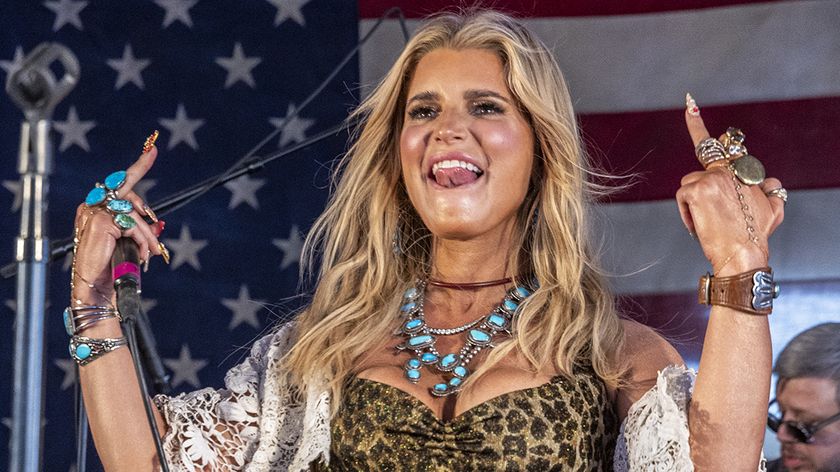
“If you want a good vocal, you gotta drink snake sperm”: Singer Jessica Simpson reveals the unusual drink that keeps her vocal cords in tip-top condition
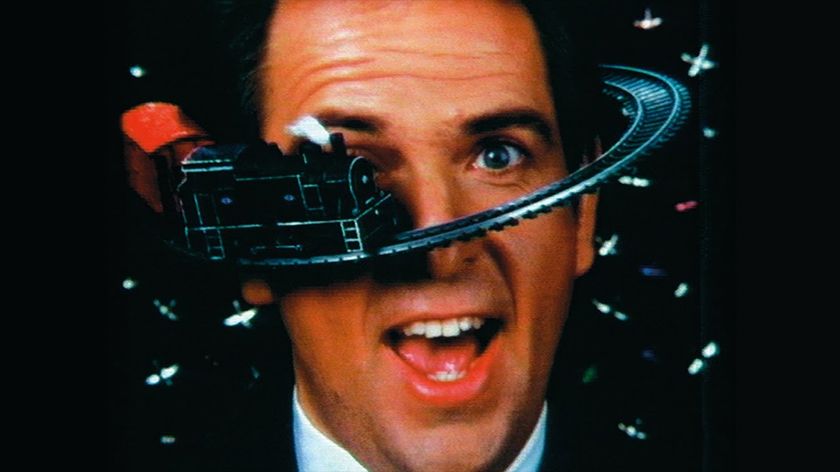
“I was thinking at the time, if anyone wants to try and copy this video, good luck to them!”: How ’60s soul music, African rhythms and a groundbreaking video fuelled Peter Gabriel’s biggest hit


